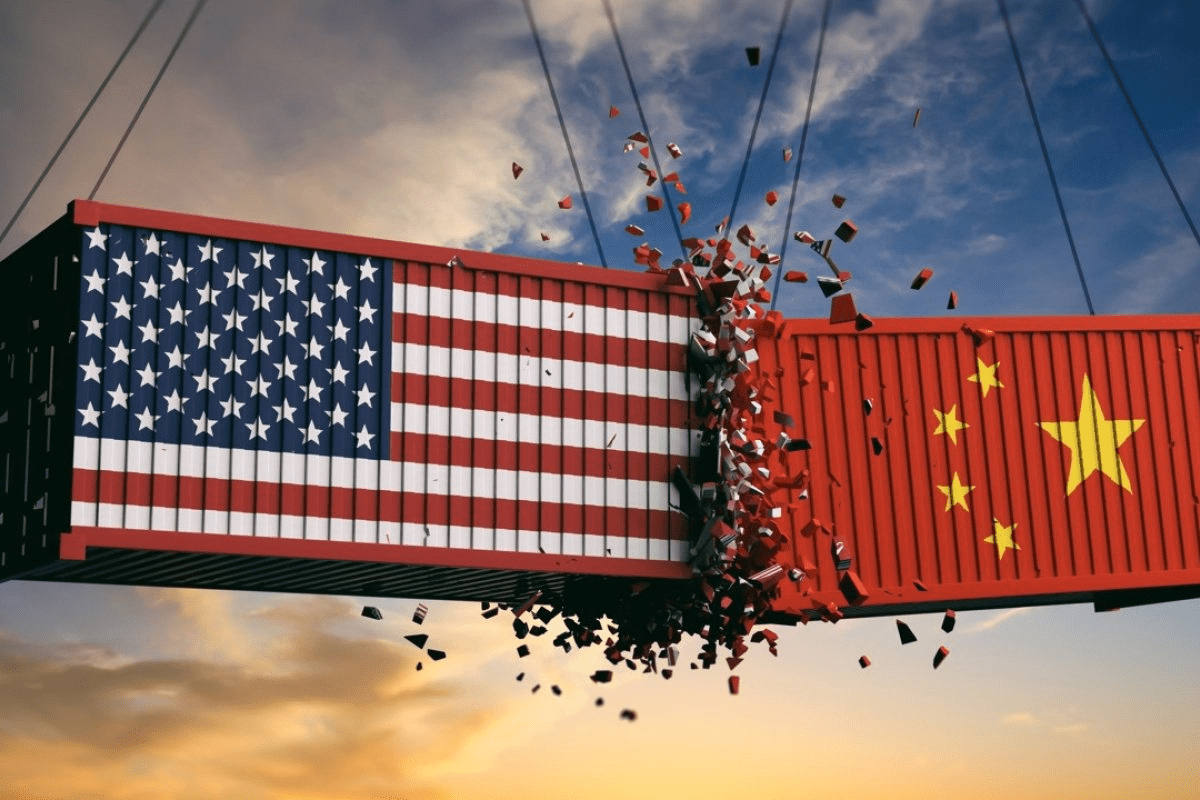
Why Skills-First Leadership Is Replacing the Ivy League Playbook in the C-Suite
The old prestige pyramid—where Ivy League degrees and blue-chip consulting backgrounds paved the way to the CEO seat—is cracking.

May 19, 2021: -American companies are bearing most of the cost burden from the high tariffs imposed at the height of the U.S. and China trade war, Moody’s Investors Service says.
In a Monday report, the rating agency said that U.S. importers absorbed over 90% of additional costs, which resulted from the 20% U.S. tariff on Chinese goods.
Meaning the U.S. importers pay nearly 18.5% more in the price for a Chinese product subject to that tariff rate of 20%, while Chinese exporters receive 1.5% less for the same effect, according to the report.
“A majority of the cost of tariffs have been passed on to U.S. importers,” Moody’s said.
“If the tariffs remain in place, pressure on U.S. retailers will likely increase, leading to a greater pass-through to consumer prices,” the agency said.
Higher trade tariffs came into force during Trump’s term. Most of those tariffs remained in place and affected over half of all trade flows amid the U.S. and China, said Moody.
U.S. tariffs on Chinese goods stood at an average of 19.3% on a trade-weighted basis in 2021, while Chinese tariffs on American products were nearly 20.7%, according to data compiled by think tank Peterson Institute for International Economics.
Before the U.S. and China trade war in the year 2018, U.S. tariffs on Chinese goods were at 3.1%, while China’s tariffs on American goods were at 8%, the data showed.
U.S. importers are not the only ones bearing the brunt of the high tariffs.
In The reports, Moody said that U.S. exporters also absorbed most of the costs from tariffs imposed by China. That’s partly due to the U.S. exports targeted by those retaliatory tariffs are products that may be sourced from other places, like agricultural goods.
Economists and businesses argue that Trump’s tariffs on China harm the U.S. economy while not forcing China to reverse its unfair trade practices.
Previously, president Joe Biden said he disagreed with Trump’s approach to China but is not in a hurry to reverse his predecessor’s policies. His administration had suggested that it’s open to using tariffs to fight China’s unfair trade practices. Some observers said the tariffs could give the U.S. leverage for China.

The old prestige pyramid—where Ivy League degrees and blue-chip consulting backgrounds paved the way to the CEO seat—is cracking.

Loud leaders once ruled the boardroom. Charisma was currency. Big talk drove big valuations.

But the CEOs who make history in downturns aren’t the ones with the deepest cuts

Companies invest millions in leadership development, yet many of their best executives leave within a few years. Why?

The most successful business leaders don’t just identify gaps in the market; they anticipate future needs before anyone else.

With technological advancements, shifting consumer expectations, and global interconnectedness, the role of business leaders

The Fort McMurray First Nation Group of Companies is the wholly owned business entity of Fort McMurray 468 First Nation. It was established in 1987 as Christina River Enterprises, and the organization rebranded as FMFN Group in 2021. Providing Construction, Custodial, Petro-Canada Fuel & Convenience Store, and Transportation services to a broad portfolio of customers, the Group of Companies is creating financial stability and prosperity for the Nation.

Maushum Basu is a visionary leader who inspires his team with a clear, compelling purpose. Unafraid to take calculated risks, he understands that growth often stems from change and innovation. His deep commitment to both Airia Brands, Inc.

When speaking with Martin Paquette, one thing is immediately apparent: he’s honest. His transparency is refreshing. While many shy away from such vulnerability, Paquette sees it as a force to reckon with. The incredible emotional intelligence speaks to years of looking within—it’s also what allows him to acknowledge his mistakes gracefully and use them as opportunities to innovate.

Marina Charriere, CEO of Star Drug Testing Services, Star Drug Testing Services (Windsor Park), and First Defence Face Masks go hand in hand. Star is a drug and alcohol testing facility, and First D F M is a face mask company.

Leave us a message
Subscribe
Fill the form our team will contact you
Advertise with us
Fill the form our team will contact you